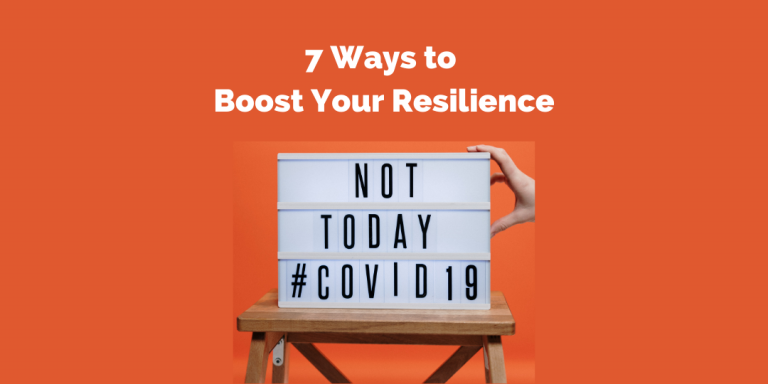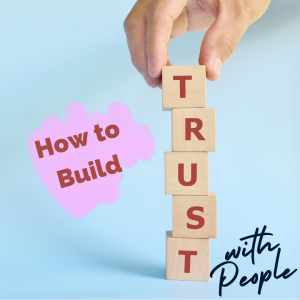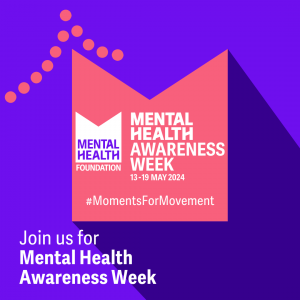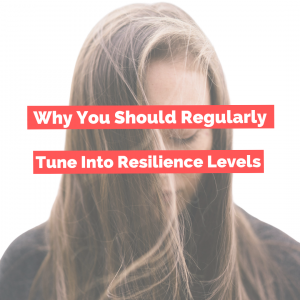It's been a challenging year, which has reminded us all of the importance of wellbeing. Here are seven ways to do just that and boost your resilience!
We’re all dragging along our invisible emotional baggage at the best of times. Many of us can now add a range of shiny new items to our baggage: we’re carrying fresh financial concerns, lugging around added job worries, the heavy strain taking its toll on the seams of our mental and physical health. Taking stock of our resilience levels is crucial to help us 1) get through this especially tough period and 2) thrive to become better and stronger for the inevitable challenges that we will face in the future.

‘Resilience’ is one of those words that we hear a lot without always considering what it means to us. Essentially, it’s what gets us through those ups and downs of life; the trials, tribulations and curve balls that life has a habit of throwing us.
You may be one of the lucky ones, wondering what all the fuss is about. Your situation may be different or you may already have strong resilience through your own self-development or pure luck. If you’ve made it this far, it’s fair to guess that you may be looking for a little support in how to develop your resilience.
Where does our resilience come from?
Here we enter something akin to the nature Vs. nurture debate. Much of the research leans towards the assumption that we all have different levels of resilience, filtered by our experiences and influences since birth. Experiences and influences from our parents, guardians, teachers, family and friends strongly develops our own internal belief and value system, helping to steer us through life.
Which leads us to coping mechanisms and our choice point of whether we decide on those which are healthy or unhealthy.
Where does my resilience come from?
Take my own cheesy X-Factor style ‘journey’. Through no choice of my own I was born into a loving family and my parents soon separated when I was very little. My mother, who loved me dearly, was an alcoholic. She soon went on to meet the man who would become my step-dad. He was also an alcoholic and together they began a very toxic and destructive relationship that would last for years, until her death in 2003 and his in 2009. That’s a very small snippet…I could go on, but you get the idea.
Now here was my choice point: I could choose to ignore, repress or fight against these experiences and influences. I could lean on other unhealthy coping strategies and behaviours, or I could choose to do the work to overcome them so that instead of defining me, they ultimately made me much stronger.
Thankfully, I chose the latter, and here are some of the things I’ve learned along the way either from my own experience or the work of others that I’ve resonated with.
1. Rate your resilience
I talk a lot about our ‘auto-pilot’ mode; it helps us in so many ways and on the flip side has a habit of forcing us to cope for longer than we should. We rarely just stop to check-in with ourselves both physiologically and mentally. Begin to regularly ask yourself “how resilient am I feeling today from 1 to 10?” Importantly, the word ‘today’ means that you might have been a 3 yesterday and you could be a 9 tomorrow – where are you today?
Then, the intention isn’t to do anything to immediately change that number, which leads us to…
2. Allow yourself to feel it
Still one of my all-time favourite books, Paul McGee writes in SUMO (Shut Up, Move On) about the importance of what he calls ‘wallow time’. We all need that space to simply feel where we’re at. Think of the last time someone tried to coach you to get to a better place, told you not to worry about it or to “keep your chin up”. We push against it, because sometimes we just want to wallow.
The trick here is to give ourselves that time before we make a conscious decision to, as Paul puts it, ‘move on’. The more we wallow, the more it depletes our resilience. We continue to relive trauma over and over again, like when we re-tell the same negative story to people around us (and often to ourselves in our own head). There has to come a point when we stop and decide to move through whatever is challenging us.
3. Develop optimism
Go with me here. This isn’t going to be a cheesy shout-out for clichéd Positive Mental Attitude (PMA). We’ll get to when the bad stuff happens. What’s important here is that so often, the bad stuff simply never happens, or things turn out not as bad as we feared they might. Just sit back and reflect on that for a second. How much time do we spend obsessing and worrying about what might happen. We disaster-ise and come up with plans b, c, d and z “just in case”. Then everything ends up fine and we’ve wasted all of that energy.
Our brilliant brain has evolved to keep us safe and protect us from danger, threat and pain. The downside of this is that we are generally terrible at remembering when things go right or when the worst doesn’t happen. Begin to notice the positives and the potential benefits of impending change, rather than revert to that auto-pilot state of “what if…?”.
There is huge crossover between having a growth mindset and building resilience...
4. Know that the bad stuff will happen
We all have our own story, and we’ve all faced personal and professional trauma in our lives, and we will again. Developing mindset and resilience is different to that cheesy PMA because resilient people understand that we still need to deal with the bad stuff, because it will happen. Whether bereavement, divorce, illness, redundancy (or furlough), the list is pretty much endless.
We’ve all been there in life when we’re ticking along quite nicely, thank you very much, and then *WHAM* we’re blindsided by something totally unexpected. This isn’t about hoping for the best or pretending that everything is rosey. Boosting our resilience helps us day to day and even more when the massive challenges come along.
5. Ask for help
Something else that we’re generally pretty rubbish at is asking for help. Speaking from personal experience, this is always at the front of my mind during the tough times because I know enough about myself to know that I have a tendency to leave it for much longer than I know I should before I ask for help.
We try and go for as long as we can, brave and stiff upper-lipped. We put ourselves there for others, being strong for them and neglecting our own needs. We try and handle things ourselves because we don’t want to burden those same people who we’re supporting. Then comes that moment when we are courageous enough to ask for help and the pressure we’re carrying on our shoulders begins to lift. Add to this that people are usually only too happy to help when we ask.
That. That’s what we need to get to sooner.
6. Choose where to focus your energy
In a world of chaos and constant, evolving change, sometimes the only choice we have is in what we choose to focus on. Know two things: that the world will keep turning no matter what, and that whatever happens, you’ll handle it.
Decision-making significantly helps our resilience. Making decisions helps us to feel empowered, no more so than when we decide that we’re not going to burn energy focusing on what we cannot control. Stephen Covey did some brilliant work here on his ‘circle of control and influence’.
Spend 10 minutes reflecting on your own circles. Take a blank sheet of paper and draw two circles, one inside the other. In between the circles, note down everything that you cannot control, but might be able to influence. Then, inside the inner circle, note down everything that you can control.
The intention isn’t to ignore anything outside of our control, but to keep it in our sphere of influence and awareness, without allowing it to control our focus and energy.
7. Develop healthy coping strategies
Let’s be honest, sometimes we know the unhealthy coping strategies are bad for us, but they feel so good in the moment. Alcohol, junk-food, denial, whatever your poison. They might see us through in the short-term though won’t help for sustained and enhanced resilience.
Similarly to knowing that the bad stuff will happen, resilient people also develop an awareness of whether how they’re coping is healthy or unhealthy and take action to eliminate the harmful.
Different things will work for each of us. For some it could be talking to others or choosing to focus on what probably won’t happen and for others it could be as simple as a walk in the fresh air or listening to music. Find out what works for you and commit to action.








